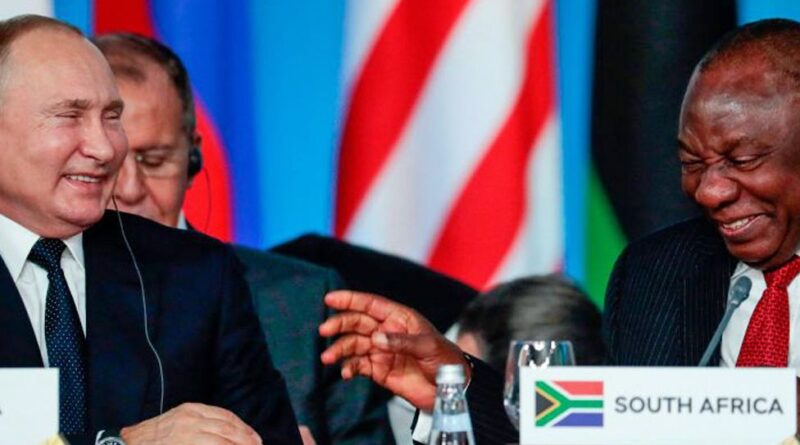surrounding the potential arrest of Vladimir Putin, South Africa finds itself contemplating a shift in the venue for the BRICS Summit
The delicate dance of political maneuvering unfolds as South Africa finds itself at a crossroads. Contemplating the venue for the upcoming BRICS summit, the country seeks a solution to its intricate dilemma surrounding the execution of an international arrest warrant for Russian President Vladimir Putin.
Whispers among those in the know suggest that South Africa is considering an alternative host for the gathering of world leaders. China or Mozambique emerge as potential options, granting respite from the thorny issue at hand. These discussions remain shrouded in secrecy, as those privy to the matter guard their anonymity. No final decision has been reached, but the wheels of contemplation are set in motion.
The Department of International Relations, led by Minister Naledi Pandor, remains cautiously optimistic. Spokesman Lunga Ngqengelele assures that, as of now, the summit’s venue stands as Gauteng province, where the bustling hubs of Johannesburg and Pretoria reside. Yet, the uncertainty lingers, casting a shadow over the planned proceedings.
South Africa extends invitations to Putin, along with the leaders of Brazil, India, and China, to partake in the prestigious event scheduled for August 22-24. However, the country’s membership in the International Criminal Court poses a challenging predicament. Should Putin set foot on South African soil, the nation would be obligated to execute the arrest warrant issued by the tribunal—an outcome it desperately seeks to avoid.
China and Mozambique surface as potential alternatives due to their non-participation in the Rome Statute that established the ICC. However, Mozambique’s suitability as a host is questioned, as it lacks the capacity to accommodate an event on the scale of a BRICS summit. The options narrow, and South Africa finds itself grappling with the weight of its decision.
This is not the first time South Africa has found itself embroiled in controversy surrounding the execution of an ICC arrest warrant. In 2015, the nation drew international criticism when it refused to detain then-Sudanese President Omar al-Bashir, indicted for war crimes and genocide, during a gathering of African leaders in Johannesburg. The Supreme Court of Appeals condemned the government’s unlawful actions, and the ICC concluded that South Africa had failed to uphold its international obligations.
In this delicate dance of international diplomacy, South Africa’s choice of venue carries significant implications. The decision will shape not only the course of the BRICS summit but also the country’s standing on the global stage. As the world watches, South Africa must navigate the intricate web of politics and legal obligations, aware of the consequences that loom over its choice.

